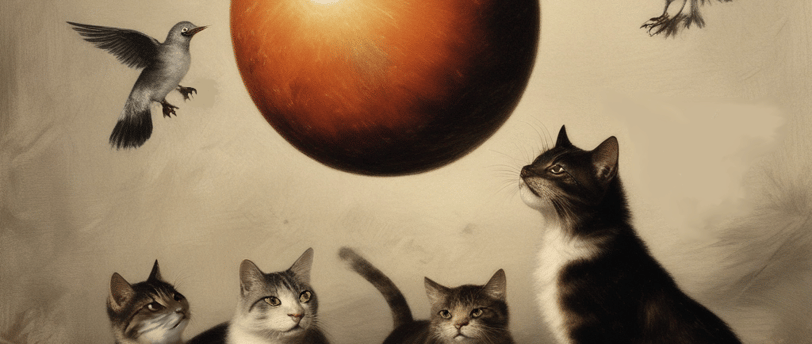Bird Flu and Cats: Why You Should Leave Your Shoes at the Door
With bird flu (H5N1) on the rise, your shoes could be tracking dangerous pathogens into your home. Learn how bird droppings can put your cat’s health at risk—and why leaving your shoes at the door is a simple but powerful way to protect them.
BIRD FLU OUTBREAK AND CATS
3/20/20252 min read


In light of the ongoing bird flu (H5N1) outbreak, cat owners need to be more vigilant about protecting their feline companions from disease exposure—and one of the easiest, most effective steps you can take is leaving your shoes at the door.
How Shoes Can Expose Your Cat to Bird Flu and Other Diseases
Most people don’t think about what’s on their shoes after walking outside. But if you live in an area where birds are present (which is basically everywhere), you’re likely stepping on traces of bird droppings, feathers, and other contaminated materials—and bringing them straight into your home.
Why is this dangerous? Because bird droppings can carry a variety of harmful viruses, bacteria, fungi, and parasites, including:
1. Avian Influenza (H5N1, aka Bird Flu)
A highly contagious virus currently spreading among wild birds, poultry, and even mammals.
Cats can become infected if they come into contact with bird droppings or contaminated surfaces.
Can cause severe respiratory and neurological symptoms in cats.
2. Chlamydia Psittaci (Parrot Fever)
A bacterial infection that can cause respiratory illness in cats.
Symptoms include eye discharge, sneezing, fever, and lethargy.
3. Salmonella ("Bird Fancier’s Disease")
Found in bird droppings and can cause food poisoning-like symptoms in cats.
Can lead to vomiting, diarrhea, fever, and dehydration.
4. Cryptococcus (A Fungal Threat to Cats)
A fungus found in pigeon droppings that can infect a cat’s respiratory and nervous system.
Can cause sneezing, difficulty breathing, and even neurological issues.
5. Toxoplasma Gondii (A Common but Dangerous Parasite)
Carried in some bird droppings and can infect cats when ingested or inhaled.
May cause lethargy, fever, and neurological symptoms, particularly in immunocompromised cats.
How Cats Get Exposed to These Pathogens
Your cat doesn’t need to go outside to be at risk—your shoes are bringing the outside in.
Here’s how exposure happens:
❌ Your shoes pick up bird droppings, dirt, and bacteria from sidewalks, parks, or even your own backyard.
❌ You walk inside, tracking those contaminants onto your floors.
❌ Your cat steps on the contaminated floor, then grooms their paws, ingesting harmful pathogens.
❌ In some cases, airborne particles from dried bird droppings can be inhaled by your cat.
Even if you don’t visibly see bird droppings on your shoes, microscopic bacteria, viruses, and fungal spores can still be present.
How to Protect Your Cat from Bird Flu and Other Contaminants
🐾 Leave your shoes at the door – The easiest and most effective way to prevent tracking in bird-related pathogens.
🧼 Sanitize high-traffic areas – Use a pet-safe disinfectant to clean floors, especially near entryways.
🚪 Store shoes in a closed area – Keep them inside a closet or shoe rack so your cat doesn’t sniff, rub against, or lick them.
👐 Wash your hands after handling shoes – Avoid spreading contaminants by washing your hands after removing your shoes.
🌿 Keep litter boxes away from entryways – Cats might step on contaminated floors before using the litter box, further spreading pathogens.
🚫 Avoid letting your cat play with outdoor items – Bags, purses, and even clothing can carry contaminants—keep them off the floor when you come home.
Final Thoughts: A Small Change That Can Save Your Cat’s Health
With the spread of bird flu and other avian-borne diseases, taking preventative measures is key to protecting your cat. Leaving your shoes at the door might seem minor, but it significantly reduces the risk of your cat coming into contact with harmful pathogens.
In a time when disease transmission between animals is a growing concern, small changes can make a big difference.
🐾 Be proactive. Keep your home clean. And most importantly—leave your shoes at the door! 🚪👟
Would you like any additional images or resources included with this post to make it more engaging? 😊
